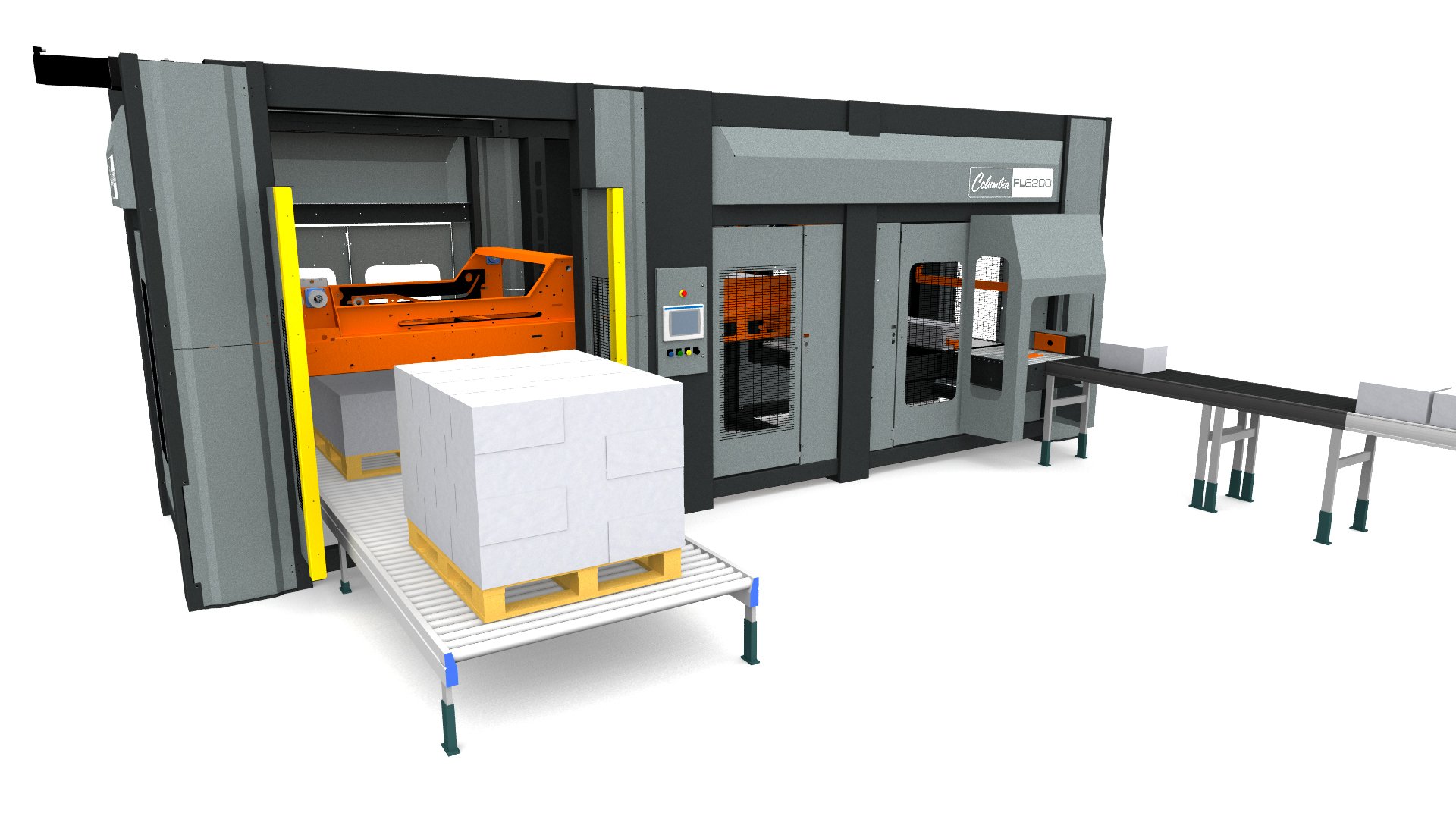Across the packaging industry, speed and flexibility are the watchwords that guide every investment. At the end of the line, palletizers must quickly respond to new marketing trends and retail demands that alter product packaging and pallet configurations.
“New packaging equipment and methods can dramatically impact downstream processes,” says Ted Yeigh, director of marketing, Columbia Machine, an OEM Partner in the Rockwell Automation PartnerNetwork™ program. “Our goal is to build solutions that can meet the demands of the products our customers are familiar with today — as well as tomorrow’s unknown products.”
A supplier of palletizers in North America, Vancouver, Washington-based Columbia Machine manufactures equipment built to help meet the diverse needs of the food and beverage, personal care, tissue towel, chemical and other industries. The company has more than 3,500 installations worldwide, and a complete line of conventional and robotic palletizers.
Servo Technology Boosts Palletizer Performance
Columbia Machine recently introduced the FL6200 high-speed palletizer, a floor-level design that combines robotic-like precision with the simplicity of a conventional system.
The FL6200 can palletize up to 100 cases per minute, depending on layer pattern — and can manage standard and challenging products, including shallow unwrapped trays, shrink pads, film-only bundles and more.
One of the keys to the palletizer’s performance and flexibility is the incorporation of servo technology.
“With the extensive use of servos on this machine, we are able to deliver the same type of speed and precise movements that many robotic systems offer — and at a higher rate of speed,” Yeigh says.
To build the pallet seamlessly and continuously, servo actuators control both the layer-transfer and load-building hoists, which work in tandem, along with the servo-controlled bi-parting stripping plates.
“The servo technology delivers the accurate, smooth movement you would expect with a robotic system,” Yeigh explains. “The palletizer can handle an array of package types because it never picks up the product — and isn’t constrained by traditional robotic arm and end effector limitations.”
In addition, the FL6200 can changeover from one package type or layer pattern to another automatically, based on information received from barcode scanners or other input methods.
“The palletizer features “zero-time” changeover,” he notes. “The machine can adjust from an unwrapped tray to a shrink bundle to a telescoping lid case to a standard case instantaneously.”
The palletizer’s flexibility also extends beyond package types to its modular construction, which allows for multiple layout configurations to meet site constraints. The future-ready design includes an optional dual-infeed, which can be added to increase capacity when required. An integrated stretch wrapper also is offered as an option.
Safety is a key priority for Columbia Machine; the palletizer’s safety and guarding package includes Category 3, Performance Level D safety components.
To minimize complexity, the FL6200 is built on a single control architecture featuring an Allen-Bradley® CompactLogix™ controller with integrated motion, and Allen-Bradley Kinetix® 5700 servo drives and VPL servo motors. The system is integrated on an EtherNet/IP™ network and uses an Allen-Bradley PanelView™ Plus 6 graphic terminal for machine interface functions.
The Kinetix servo drives’ built-in “load observer” tuning features help to achieve the motion control system’s precision and repeatability. During commissioning, load observer simplifies the tuning process — and during operation it estimates the mechanical load inertia on the motor and automatically compensates for it in real time. This feature helps maintain accurate, smooth performance regardless of the product being palletized.
Integration Offers Simplicity
From an operational and maintenance standpoint, using a common control architecture and network for the complete system offers distinct advantages.
“There is no separate robotic controller or subsystem,” Yeigh says. “Our customers have a comfort level with Rockwell Automation technology and this palletizer offers that familiar control environment for the entire machine.”
The machine also includes intuitive HMI screens, designed to speed diagnostics and improve overall equipment effectiveness (OEE). The company’s Product Manager HMI software is built on the Rockwell Automation platform.
“The analytics and data the Product Manager HMI can deliver are significant,” Yeigh claims. “Over the years, we incorporated input from customers and collaborated with Rockwell Automation as we developed and perfected that platform. We look forward to our continued relationship.”
Columbia Machine, based in Vancouver, Washington, manufactures palletizers, serving a variety of major industries including food, beverage and consumer products.
Learn more about the Rockwell Automation OEM Partner Program.
The Journal From Rockwell Automation and Our PartnerNetwork™ is published by Putman Media, Inc.
